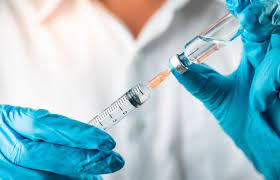
Cases of corona infection have started increasing once again in all parts of the world. China and Russia have once again announced a lockdown in some parts because of the increasing infection. According to health experts, vaccination is the most effective weapon to protect against Covid-19. So far more than 105 crore people in India have received at least one dose of the vaccine. Meanwhile, a recent study has brought relief to the people. In a study published in the Journal of the American Medical Association, scientists have reported that vaccinated people who have previously had a corona infection may have higher and more effective levels of antibodies against the SARS-CoV-2 virus.
Scientists have come to this conclusion after a study conducted on 1,960 health workers who took both doses of Pfizer/Moderna in the US. This study is considered special because there is a constant debate on the effectiveness of antibodies made after vaccination. Let us know about this study in detail in the following slides.
Antibodies are more effective in already infected
For the study, researchers included 73 people whose RTPCR test report of corona came positive before taking the first dose. After one and three months after giving both doses of the vaccine to these people, the level of antibodies made in the body was checked. In this, scientists found that the levels of antibodies made after the vaccine were found to be higher in people who were already infected than in other people.
Antibodies increase over time
In this study, we found that healthcare workers who had corona infection before vaccination had antibodies compared to others after two doses of mRNA, says study lead author Diana Zhong, a fellow at the Johns Hopkins University School of Medicine. the level was found to be high. The test found antibody levels to be 14 percent higher after one month of the second dose, 19 percent after three months, and 56 percent after six months, compared to others.
Vaccination interval after infection is better
Researchers reported that levels of antibodies were found to be higher in people who had been infected about 90 days before the first dose of the vaccine. In addition, it has also been found during the study that a longer interval between infection and the first dose of vaccine can promote an antibody response, says Aaron Millstone, a professor at Johns Hopkins University School of Medicine and senior author of the study. At present, according to the guidelines, vaccination can be done after 90 days of recovery from the infection.
The risk of infection will be less
"Further investigation is needed to determine whether people who are already infected may be at risk of infection after vaccination," says study researcher Aaron Millstone. At the moment it is certainly satisfactory that people who have already been infected can be considered more protected from the coronavirus after vaccination. This study can be very important because of the increasing cases of corona again.
Ashnoor Kaur, a former contestant of 'Bigg Boss 19', made many friends during her time on the sho
Allahabad High Court has rejected the petitions of the Sunni Central Waqf Board and Anjuman Arran
Prime Minister Narendra Modi was given a rousing welcome in France. French President Emmanuel Mac
"Between 10:30 and 11:30 pm, the mob attacked pelted stones, and set vehicles on fire. People wer
There has been a big disclosure about Mehul Choksi, one of India's most wanted fugitive businessm
The England team faces much criticism after the crushing defeat to India at Edgbaston. After the
Attention Making derogatory or indecent remarks against people belonging to Scheduled Castes and
Prime Minister Narendra Modi said on Thursday that the picture of new India is a confluence of bo
Guwahati-Bikaner Express Train accident: There has been a train accident in Domohani, Jalpaiguri.
Missiles on Abu Dhabi: The United Arab Emirates (UAE) intercepted and destroyed two ballistic mis